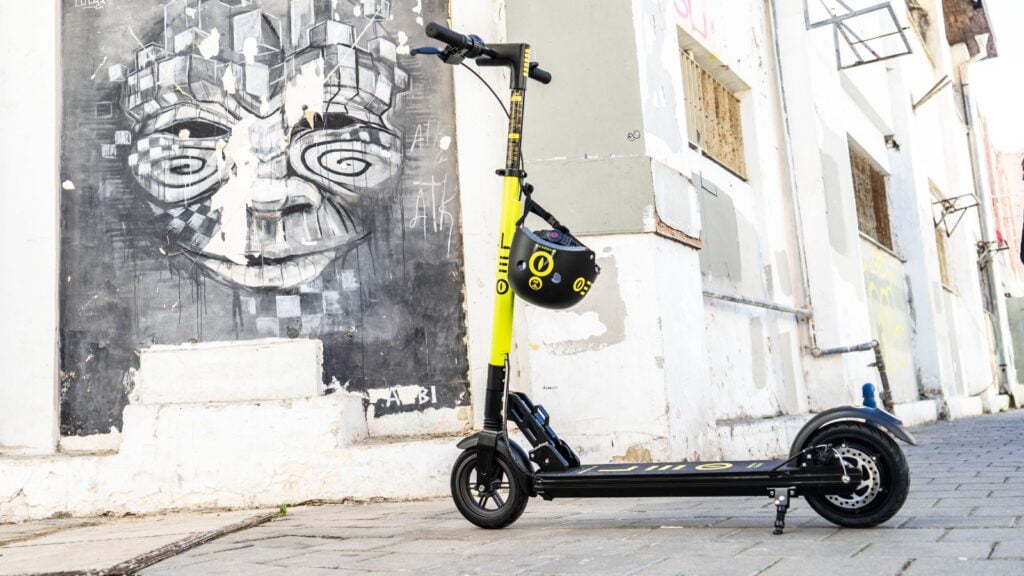Hospitality service Selina, launched by Israeli entrepreneurs Rafael Museri and Daniel Rudasevski, has acquired the US company Remote Year in an all-stock transaction, the company announced earlier this month. The financial details of the deal were not disclosed.
Founded in 2012, Selina combines affordable accommodation, co-working spaces, fine dining, wellness, and volunteering initiatives in 76 locations across Latin America, the US, and Europe. In April 2019, the company raised $100 million in a Series C round by a number of investors.
SEE ALSO: The Israeli Dream: Hospitality Startup Selina Redefines Work And Play For Digital Nomads
Remote Year was founded in 2014 and offers packages for participants to live and work in a new city each month for the program’s duration, allowing professionals to embrace the remote work movement.
As part of the acquisition, Remote Year will continue operating as its own brand and will use Selina’s catalog of properties spanning 19 countries and three continents to improve its customer experience. Selina will also leverage Remote Year’s community of professionals and remote workers as it focuses on longer-term stays and its remote work offering.

Together, Selina and Remote Year said they will work to tailor products that fit the needs of this expanding market. Both companies already represent two leading brands in travel and remote work categories and the acquisition aims to strengthen their prospects.
The acquisition is one of a number of moves Selina says it is making to “double down on its stay, play and ‘work from anywhere’ model” including the recent launch of Selina’s subscription-based travel packages.
The company’s new offering is geared to answer an all-time high demand for remote work solutions, with approximately 40 percent of employees expected to utilize a remote working model in the future, according to Boston Consulting Group (BCG.)
The work from home (WFH) shift is also a result of the COVID-19 pandemic.
Selina has launched three different programs including the Nomad Passport for those who want to purchase multiple stays ahead of their travel, SelinaCoLive for the remote worker who wants to live/work at a Selina property for an extended period of time, and the B2B Remote Work Pass for the frequent remote worker looking to stay at a Selina property for a fixed period of time per month, and is paid for by their employer.

Each subscription package enables travelers to move freely between Selina properties, either regionally or globally, inclusive of accommodations, coworking spaces, daily wellness activities, weekly laundry and discounts for food and beverage, with prices starting at just $180 per month in some locations.
“At Selina, we have always supported flexible remote work models and believe they result in an increase in productivity and a reduction in turnover for businesses,” said Museri, who serves as Selina’s CEO. “With the acquisition of the Remote Year brand, and the launch of our subscription-based packages, it’s clear that our business model is one designed for this new age of working, and is well-positioned to support not only long-standing digital nomads but also a new generation of remote workers that are being offered more flexible work environments by companies looking to attract and retain talent.”
Sign up for our free weekly newsletter
SubscribeSam Pessin, Remote Year co-founder and CEO, said: “We could not be more thrilled to join the Selina family. We have previously partnered with Selina in multiple markets over the last few years, and look forward to utilizing their global team and infrastructure to power our best programs yet.
Meanwhile, Selina announced on Wednesday that it invested an undisclosed sum in the Israeli-founded e-scooter sharing company LEO along with other top investors.
The company said it was “building upon its commitment to provide guests with an enhanced and culturally-driven experience while staying at a Selina property.”

This investment will enable Selina to expand the range of experiences it offer to guests while allowing LEO to leverage Selina’s global reach to scale their presence and grow their community, the companies said.
“In Selina, we realized that green and “open-air” transportation will replace traditional mobility options like busses, cars, trains. There are many reasons for this, but we know that many travelers, even more after this pandemic, have tighter budgets, and sometimes renting a car is not an option. Also, in urban cities, people are less excited to use traditional transportation to get around. That’s why we decided to partner with LEO,” said Museri.
He added that the partnership will “not only will enhance our guest experience but open the doors to a new chapter for micro-mobility and hospitality.”
SEE ALSO: Goldman Sachs Names Selina, Venn Co-Founders Among ‘100 Most Intriguing Entrepreneurs’

“Just like the sharing economy has managed to disrupt entrenched industries across the world, micro-mobility represents another notable area for expansion of these services, now combine it with hospitality, and you will have endless possibilities,” said Kfir Ben Shushan, co-founder of LEO. Kfir Shushan and his brother Dror own a majority stake in LEO and scooter supplier INOKIM.
Selina plans to introduce LEO scooters into all its locations in the next two years. LEO will allow guests to access the scooter-sharing service when traveling the world, making it easier to get around and explore surrounding areas. LEO scooters will be available in Selina locations in Israel, Mexico, and Brazil by the end of the year.
LEO’s shared scooters are available in Eilat in partnership with the Fattal hotel group, as well as the Dead Sea area.
Related posts

Rehabilitation Nation: Israeli Innovation On Road To Healing

Israeli High-Tech Sector 'Still Good' Despite Year Of War





Facebook comments